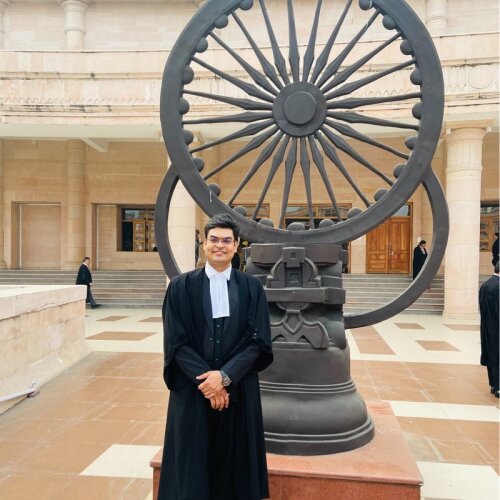Best Inheritance Law Lawyers in India
Share your needs with us, get contacted by law firms.
Free. Takes 2 min.
Or refine your search by selecting a city:
List of the best lawyers in India
1. About Inheritance Law in India
Inheritance law in India governs how a person’s assets are distributed after death. It blends codified statutes with religion based personal laws. The key difference is between intestate succession (no will) and testamentary succession (through a will).
For Hindus, Buddhists, Jains and Sikhs, the Hindu Succession Act, 1956 largely dictates how property passes on death. For Christians, Parsis and others, the Indian Succession Act, 1925 applies. Muslims follow personal law under the Shariat Act of 1937 in matters of inheritance.
In practice, most families resolve property distribution through civil court processes, including partition suits, probate filings and succession certificates. Legal counsel helps interpret which statute applies, draft wills, and guide court filings across states. A clear understanding of local practices can prevent costly disputes later.
Key trend to note - the 2005 Hindu Succession Act Amendment extended coparcenary rights to daughters. This reshaped how ancestral property is owned and inherited within Hindu families. Source: Legislative Department
2. Why You May Need a Lawyer
- Disputes over ancestral property in a Hindu family. A father dies intestate, and siblings disagree about partition. A lawyer helps establish coparcenary rights, file a partition suit, and negotiate a fair division. This is common after daughters gain equal coparcenary rights post-2005 amendment.
- Drafting or probating a will for a complex multi-state asset. A person owns land in Maharashtra and a bank deposit in Karnataka. A solicitor guides will drafting to meet formality requirements and secures probate where needed.
- Inheritance for Muslims under Shariat law in a mixed family. When family assets include jewelry, property and cash, a lawyer clarifies heirs, shares and guardianship issues under Shariat norms.
- Succession for Christians or Parsis with overseas assets. Inheritance may involve property in India and abroad. An attorney coordinates succession filings and ensures compliance with both Indian law and foreign transfers.
- Contested will or validity challenges. If a will is suspected of coercion, fraud or misrepresentation, a legal professional evaluates signatures, witnesses, and the relevant probate process.
- Executor or administrator appointments. If there is no will, a lawyer helps obtain a succession certificate or probate order and appoints an administrator to manage assets.
3. Local Laws Overview
The following statutes are central to Indian inheritance matters and determine how property moves on death across major communities.
Hindu Succession Act, 1956
This act governs succession among Hindus, Buddhists, Jains and Sikhs, including intestate and testamentary aspects. It codifies who among relatives inherits when there is no will and clarifies coparcenary rights for daughters after the 2005 amendment. The amendment made daughters equal coparceners with sons in the property that belongs to the Hindu undivided family, with effect from 9 September 2005.
In practice, many Hindus use partition suits filed in civil courts to formalize distribution among co-owners. It is important to determine whether the property is ancestral or self acquired, as this affects the share and method of transfer.
Hindu daughters gained coparcenary rights by the Hindu Succession (Amendment) Act, 2005, effective from 9 September 2005. Source: Legislative Department
Indian Succession Act, 1925
This act applies to Christians, Parsis and others not covered by Hindu law. It governs testamentary succession via wills and intestate succession for these communities. The act also covers probate and the creation of executors and administrators for estate management. In practice, many property transfers require a probate or succession certificate under this act.
Courts consider the will’s validity, the capacity of the testator, and the absence of undue influence. While wills can simplify transfer, probate may still be required to transfer immovable assets to heirs. For cross-border assets, Indian law coordinates with foreign jurisdictions through appropriate legal channels.
Indian Succession Act, 1925 governs wills and intestate succession for Christians, Parsis and others not governed by Hindu law. Source: Legislative Department
Muslim Personal Law (Shariat) Application Act, 1937
This act applies Sharia principles to succession for Muslims where there is no specific contract or will. It governs how Islamic heirs inherit, including the shares of male and female relatives. In many cases, families use a will to vary customary shares, but the rules of inheritance remain guided by Sharia principles unless the will otherwise directs.
Understanding the Muslim personal law context is crucial in mixed-asset scenarios or when a will attempts to distribute assets in a non-traditional manner.
Muslim Personal Law (Shariat) Application Act, 1937 provides the framework for inheritance under Sharia in India. Source: Legislative Department
For procedural considerations, many matters in inheritance cross state lines. Filing often occurs in the state where immovable property is located. A local inheritance attorney can advise on state-specific rules, court practices and fees. Recent trend - courts increasingly rely on clear documentation and online filing where available.
4. Frequently Asked Questions
What is the difference between probate and a succession certificate?
Probate validates a will in court and is typically required for transferring immovable property. A succession certificate confirms the deceased authority to deal with debts and securities. Both help establish legal entitlement of heirs.
How do I start intestate succession in India?
Identify all legal heirs under the relevant personal law. File a petition in the appropriate civil court for succession or partition, supported by documents proving relationship and asset details. A lawyer helps plan the exact petition and gather required proofs.
When does the Hindu Coparcenary right apply to daughters?
The 2005 amendment makes daughters coparceners in Hindu undivided property. This applies to a property owned by a HUF after 1956, with the daughter acquiring rights by birth or through partition or other transfer events.
Where should I file a partition suit in India?
Partition suits are typically filed in the district court where the ancestral property is located. A local solicitor can determine the correct jurisdiction and prepare a partition plan with maps and shares.
Why should I hire a lawyer for will drafting?
A lawyer ensures the will meets legal formalities, avoids ambiguity, and reduces chances of challenge. They help with witness requirements, notarization, and proper execution across multiple jurisdictions if assets exist abroad.
Can daughters claim equal shares in ancestral property under Hindu law?
Yes, under the Hindu Succession Act as amended in 2005, daughters have coparcenary rights in ancestral property, equal to sons in certain circumstances. This change affects how property is inherited and partitioned.
Should I obtain probate for a will in India?
Probate is not always mandatory, but banks and title holders often require it to transfer immovable assets. It provides a court-approved validation of the will before asset transfer.
Do I need a will if I am single with no children?
It is still wise to draft a will to designate beneficiaries and avoid intestate complications. A will clarifies asset distribution and can reduce family disputes after your death.
Is there a timeline to obtain probate or succession orders?
Probate processes vary by state and complexity. Typical timelines range from 6 to 24 months, depending on court workload and the complexity of your estate. A lawyer can offer state-specific estimates.
How much does probate or succession guidance cost?
Costs vary with property value and complexity. Attorney fees may include consultation, drafting, filing, and court appearances, often structured as a fixed fee or a percentage of the estate value.
Do I qualify as a legal heir in a contested estate?
Qualification depends on your relationship, religion and the applicable succession law. A lawyer can explain your rightful share and assist with evidence gathering.
5. Additional Resources
The following official resources help you understand inheritance law in India and locate competent legal assistance.
- National Judicial Data Grid (NJDG) - Official portal with court statistics, case pendency and disposal data for district and high courts. https://njdg.ecourts.gov.in/
- Ministry of Law and Justice - Government department overseeing legislation, acts and legal policy in India. https://lawmin.gov.in
- Supreme Court of India - Official information about the apex court, judgments and practice directions related to succession and probate. https://www.sci.gov.in
Recent reforms and ongoing case law reflect India’s need to balance tradition with modern ownership rights in inheritance matters. Source: National Portal of India
6. Next Steps
- Define your goal clearly - is it probate, partition, or challenging a will? Set a realistic target for resolution.
- Gather all assets and heir documents - titles, will, death certificate, marriage certificates and birth records.
- Identify the applicable law - Hindu, Muslim, Christian or Parsi law depending on the heirs and property.
- Consult a local inheritance attorney - schedule an initial 60-minute consultation to review your case and fees.
- Prepare a strategy with timelines - discuss filing dates, expected court schedules and potential mediation steps.
- File the necessary petitions - probate, succession certificate or partition suit as advised by your solicitor.
- Monitor progress and adjust strategy - stay in contact with your counsel and respond promptly to court requests.
Lawzana helps you find the best lawyers and law firms in India through a curated and pre-screened list of qualified legal professionals. Our platform offers rankings and detailed profiles of attorneys and law firms, allowing you to compare based on practice areas, including Inheritance Law, experience, and client feedback.
Each profile includes a description of the firm's areas of practice, client reviews, team members and partners, year of establishment, spoken languages, office locations, contact information, social media presence, and any published articles or resources. Most firms on our platform speak English and are experienced in both local and international legal matters.
Get a quote from top-rated law firms in India — quickly, securely, and without unnecessary hassle.
Disclaimer:
The information provided on this page is for general informational purposes only and does not constitute legal advice. While we strive to ensure the accuracy and relevance of the content, legal information may change over time, and interpretations of the law can vary. You should always consult with a qualified legal professional for advice specific to your situation.
We disclaim all liability for actions taken or not taken based on the content of this page. If you believe any information is incorrect or outdated, please contact us, and we will review and update it where appropriate.
Browse inheritance law law firms by city in India
Refine your search by selecting a city.
















